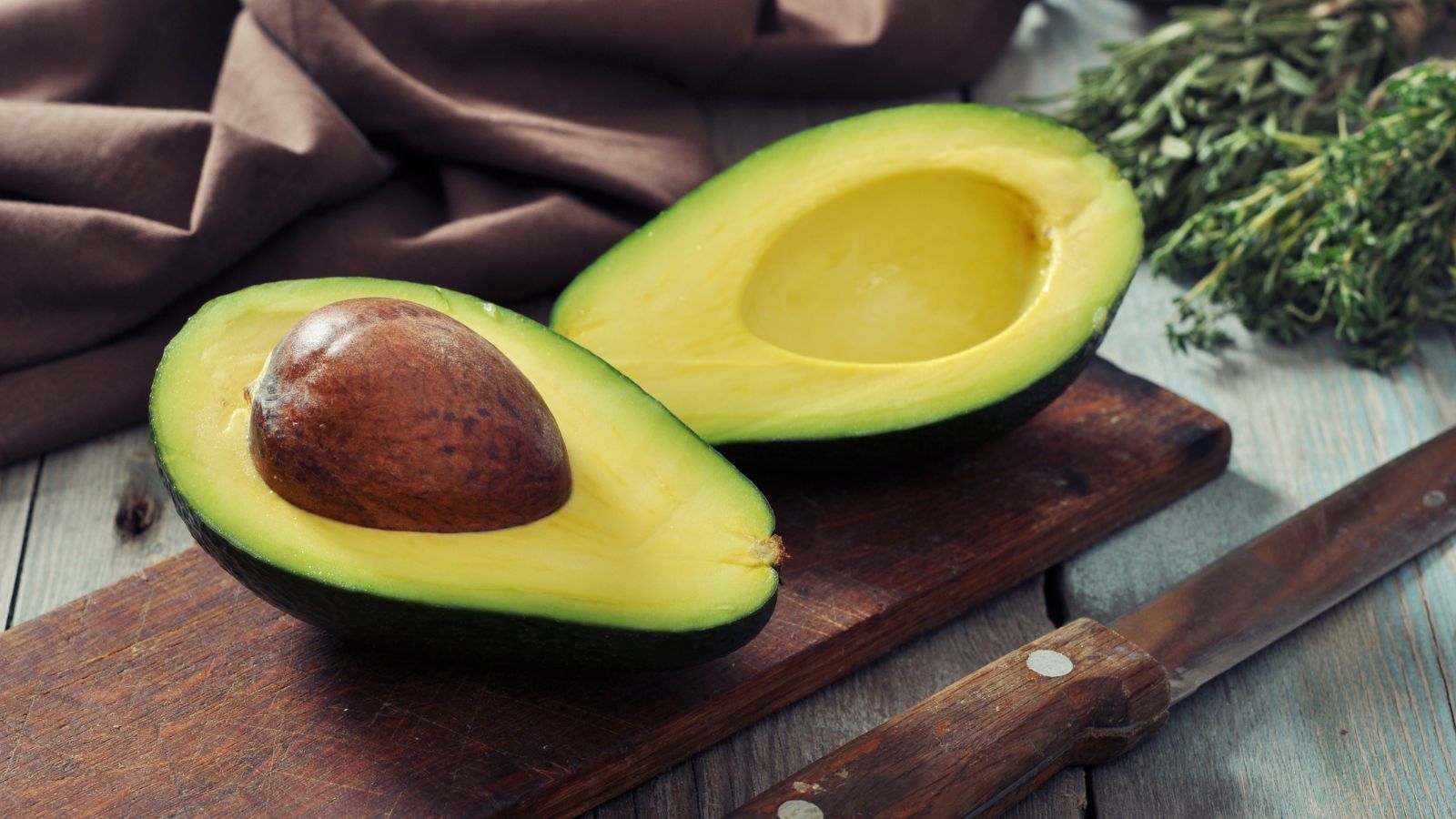Dogs are man’s best friend for a good reason, so it’s important that we treat them like it. One way we can do this is by ensuring that they don’t get their noses into anything they shouldn’t. To help you do just that, this list covers 18 dangerous snacks you should never feed your dog.
Chocolate

Chocolate makes a delicious treat for humans, but for dogs, it’s a toxic substance that can even prove fatal in severe cases. According to VCA Animal Hospitals, this is because chocolate contains theobromine, which is harmful to dogs and can lead to kidney failure, as well as symptoms such as vomiting, rapid breathing, and diarrhea.
Xylitol
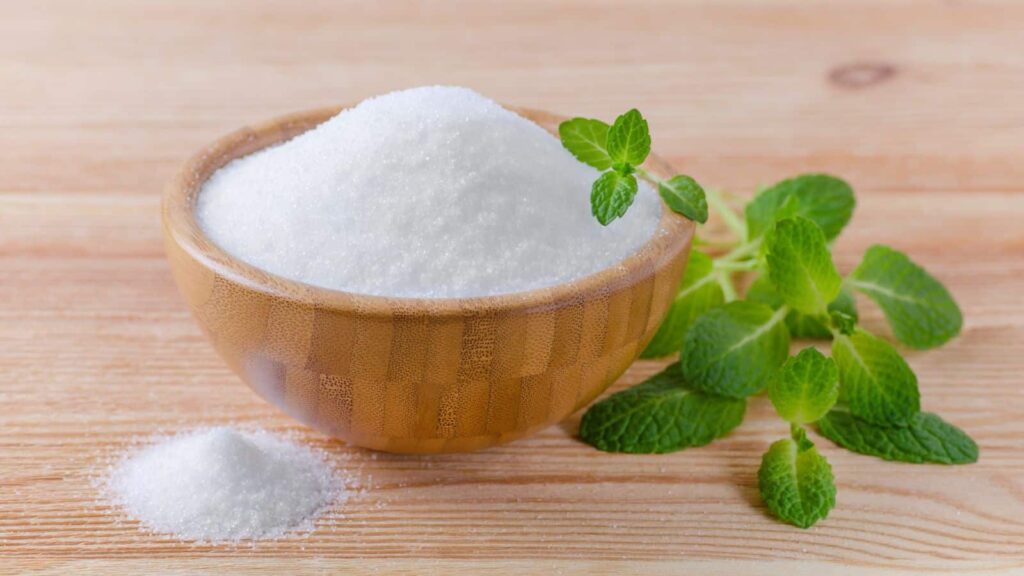
You may not have heard of xylitol, but it’s actually a very common ingredient in snacks such as candy, gum, and certain peanut butters. While xylitol is usually harmless to humans, it can cause a rapid insulin release in dogs, which can result in symptoms like vomiting, seizures, and lethargy. It can also lead to liver failure in some cases.
Grapes and Raisins

Like our previous two entries, grapes and raisins can cause acute kidney failure in dogs, so it’s important to keep them safely stored away where your canine companion can’t find them. Even a small amount can be toxic and lead to symptoms such as vomiting, dehydration, and lethargy.
Onions and Garlic
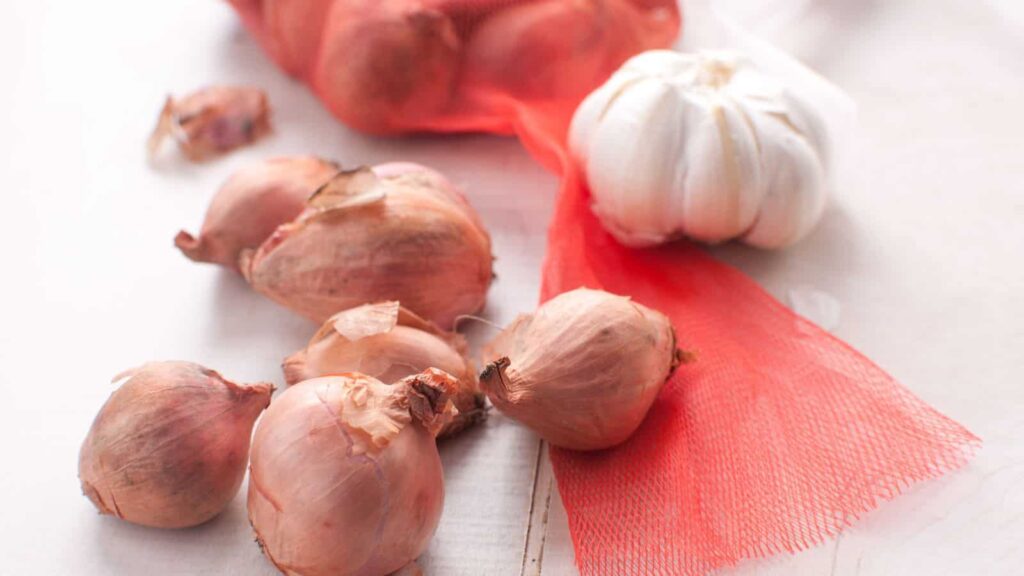
Both onions and garlic can cause damage to a dog’s red blood cells, sometimes leading to anemia and other negative health symptoms. Signs of poisoning include irritation of the mouth, nausea, abdominal pain, drooling, diarrhea, and vomiting. If you see these symptoms, it’s safest to take your dog to the vet as soon as possible.
Macadamia Nuts

While humans have no problems ingesting and digesting macadamia nuts, they can cause dogs to develop symptoms such as overheating, vomiting, and weakness. You’ll usually see these symptoms within 12 hours of them eating the nuts. While these symptoms can be painful and distressing, most dogs recover within 48 hours.
Alcohol

Even a small amount of alcohol can be very dangerous for your dog, leading to health issues such as diarrhea, vomiting, coordination problems, and difficulty breathing. Dogs may also fall into a coma, and in the worst cases, it can even prove fatal, making it very important that you don’t leave any lying around near your dog.
Caffeine

While many people love caffeine for its ability to give them a morning energy boost, it does not have the same energizing effect on dogs. In fact, it can cause many harmful symptoms, such as restlessness, rapid breathing, muscle tremors, and heart palpitations.
Dairy Products

According to the American Kennel Club, a large number of dogs are lactose intolerant, meaning they can experience many of the same negative symptoms as intolerant humans. For example, they may have an upset stomach, gas, discomfort, diarrhea, and bloating. For this reason, it’s best to avoid feeding them any snacks that contain dairy.
Avocado
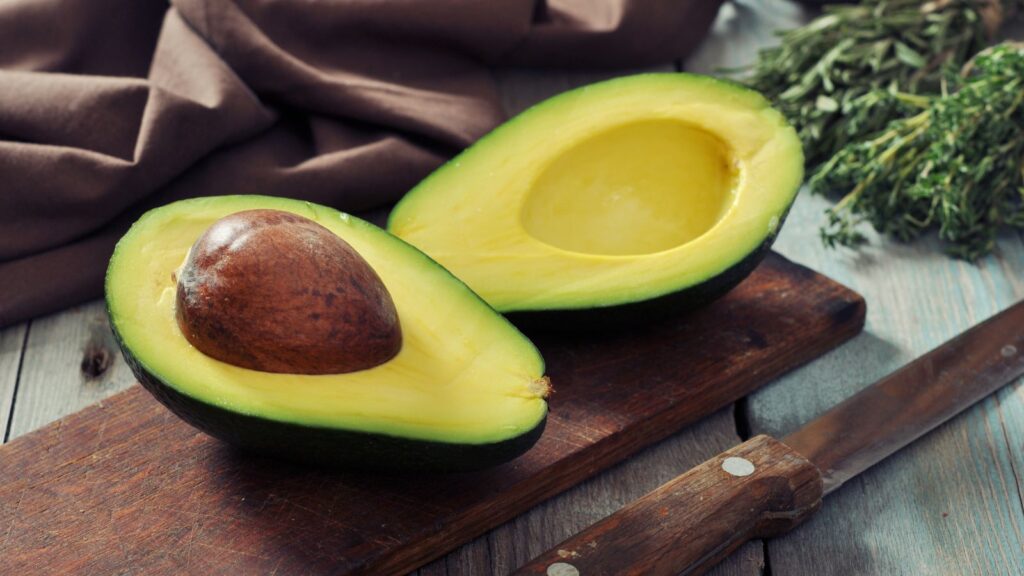
While avocado pulp is typically not harmful to dogs, the pit, leaves, and other parts of the plant contain persin, which can lead to diarrhea and vomiting. Therefore, it’s best to be on the safe side by keeping avocados away from your dogs altogether.
Raw/Undercooked Meat
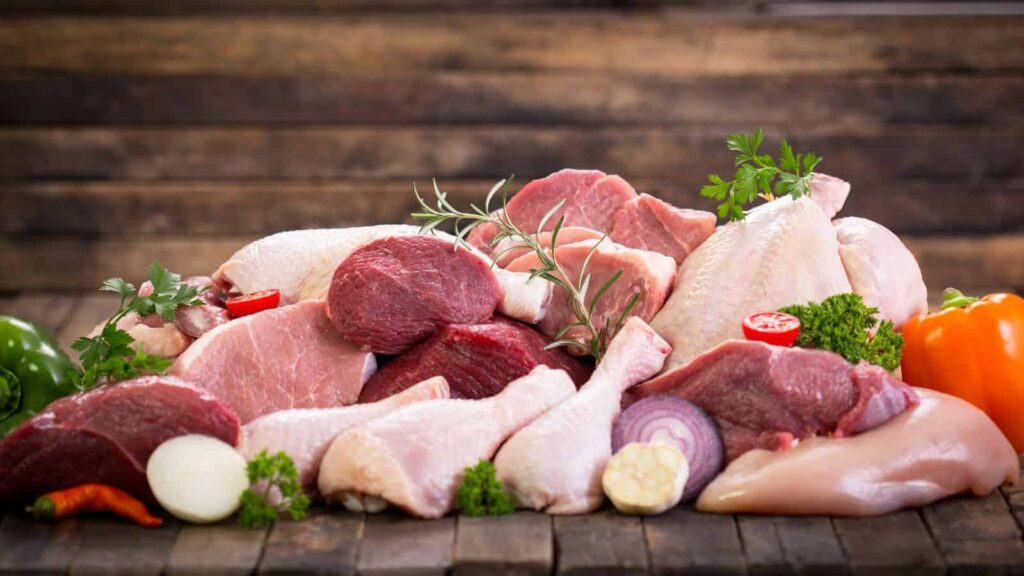
While our dogs’ wild ancestors fed on raw meat, that doesn’t mean we should feed our canine companions the same thing. Raw or undercooked meat may contain harmful bacteria, such as Salmonella or E. coli, which can cause serious food poisoning in dogs.
Salt
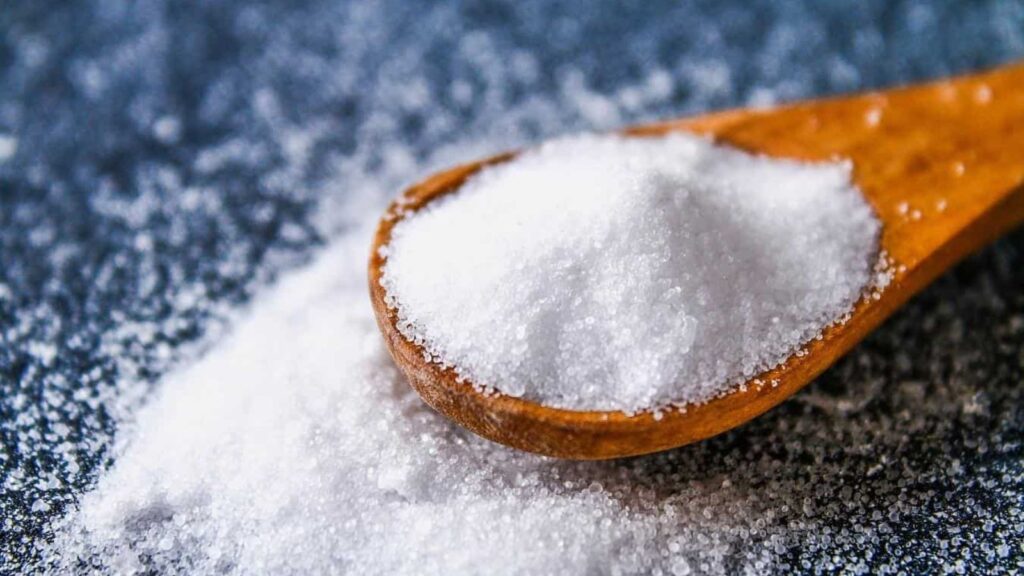
Salt is present in many human foods and snacks, so it’s important to make sure your dog doesn’t consume too much. While it can be okay in small quantities, high amounts of salt can lead to excessive thirst, urination, vomiting, diarrhea, seizures, and tremors.
Yeast Dough

You may not immediately think of yeast dough as being harmful to your pets, but it can actually rise after ingestion, causing a build-up of gas in a dog’s digestive system. This can lead to stomach pain and sometimes even ruptures within the intestines or stomach.
Corn on the Cob
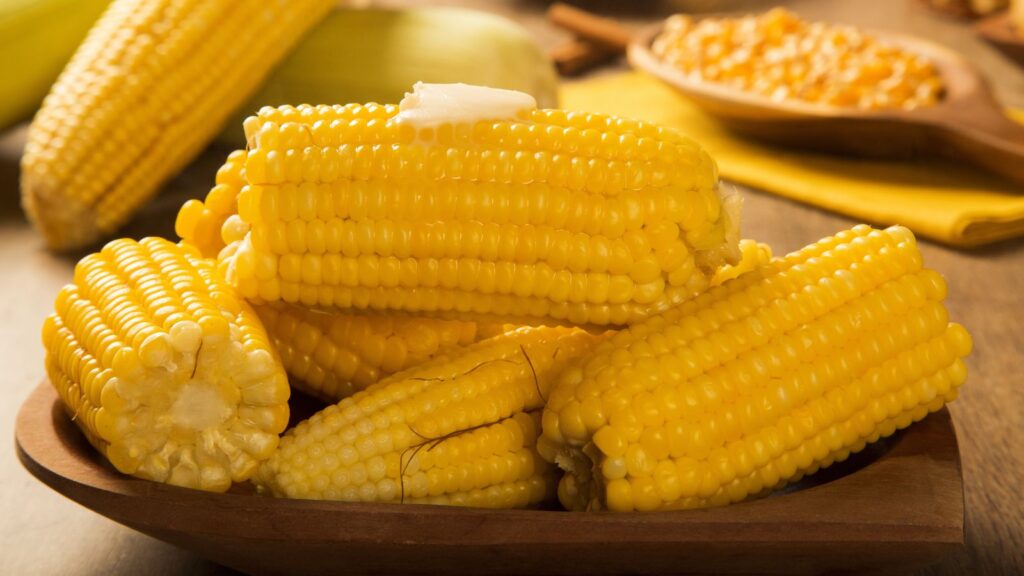
According to the BVA, while corn is not toxic to dogs, corn on the cob can cause serious intestinal blockages that can severely damage the digestive system and even lead to death. For this reason, it’s recommended to keep this snack far away from your dog’s reach.
Bones

While many people let their dogs chew on bones, it can actually be very dangerous to do so. Both raw and cooked bones have the potential to splinter, sometimes leading to choking or damage to your dog’s mouth, throat, or digestive system.
Nutmeg

For humans, nutmeg is an innocent and flavorful spice that works well in a variety of desserts. But for dogs, it’s a poison that can cause seizures and central nervous system issues in high doses. It has also been known to cause stomach upset, hallucinations, and an increased heart rate.
Raw Potato

Sprouts and green potatoes contain a toxic glycoalkaloid called solanine, which can cause serious damage to a dog’s digestive system and lead to nervous system problems. If your dog has been around raw potatoes and is displaying symptoms such as vomiting, heart irregularities, or diarrhea, you should take them to a vet to get checked out.
Coconut and Coconut Oil

Coconut is not usually classified as toxic to dogs. However, as noted by the American Kennel Club, it does contain triglycerides that can lead to stomach upset, bloating, and diarrhea, especially in high quantities. For this reason, it’s best to avoid feeding them snacks that contain coconut.
Leeks
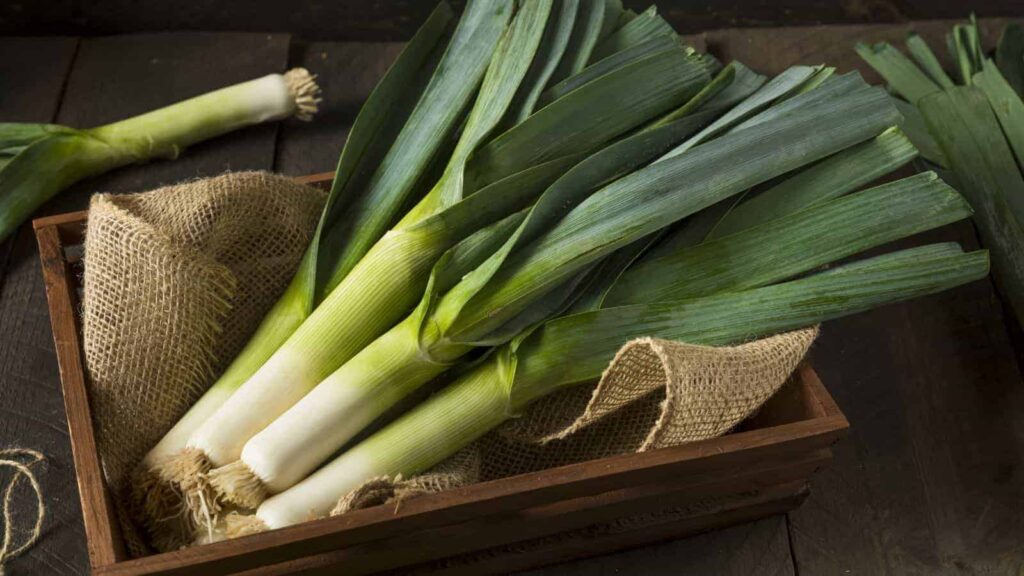
Even a small portion of leeks can be toxic to your dog, potentially damaging their red blood cells and causing gastrointestinal irritation. Other symptoms of poisoning include vomiting, breathing difficulties, weakness, diarrhea, and an elevated heart rate. If you think your dog has eaten part of a leek and is displaying health problems, you should consult a vet for advice.
Up Next: 17 Things Most People Forget After Someone Dies

When a person dies, it’s easy for their partner or family members to overlook things while they process shock and grief. Despite the pain of losing a loved family member, it’s important to remember to organize these 17 things to prevent problems later on.
17 Things Most People Forget After Someone Dies
17 Phrases Confident People Use to Stand Up For Themselves

Confidence is a healthy and attractive trait that helps us stand firm in our values and set healthy boundaries. We can always become more confident, and learning the right ways to stand up for yourself is a great way to start. Here are 17 phrases you can use to do so.
17 Phrases Confident People Use to Stand Up For Themselves
20 Signs Someone Is Only Pretending to Care

Whether it’s to avoid hurting your feelings or if it’s part of a more elaborate plan to deceive you for benefits, people pretend for many reasons. The main theme with them, though, is that their actions never match the sugar-coated words that come out of their mouths. So that you don’t fall for someone like this, we’ve compiled 20 signs for you to look out for.

